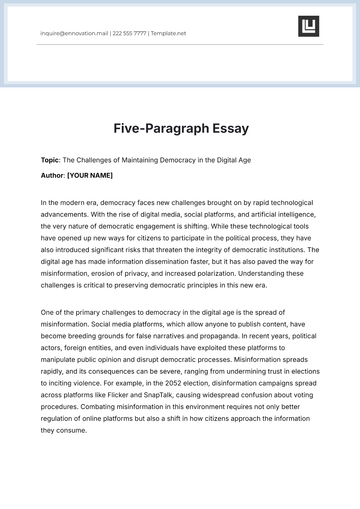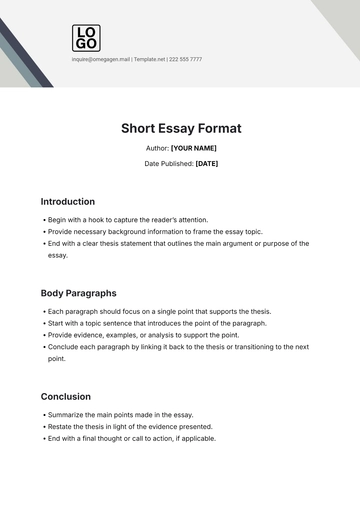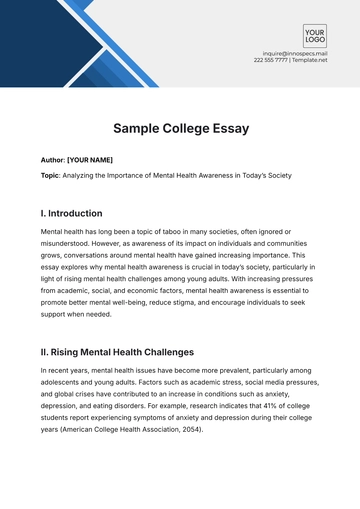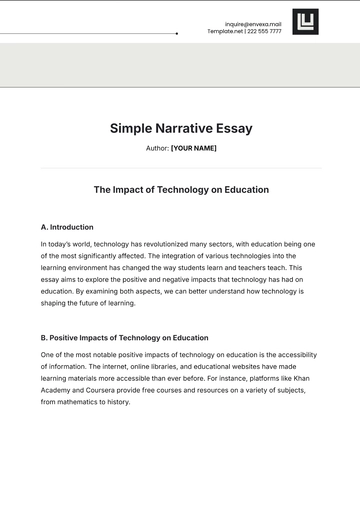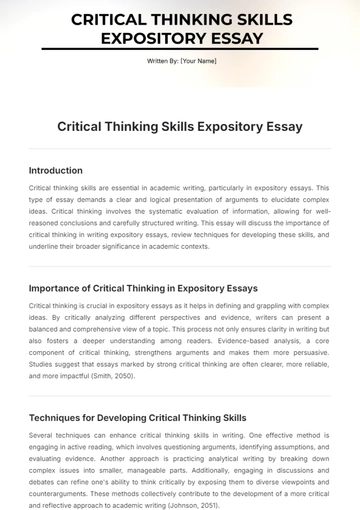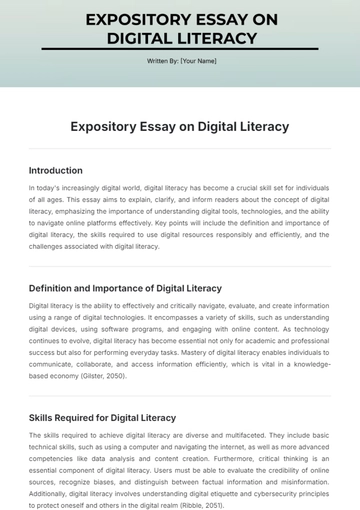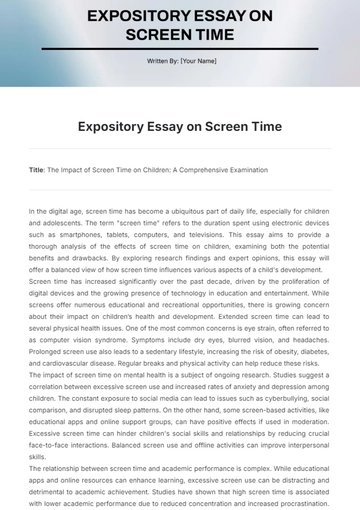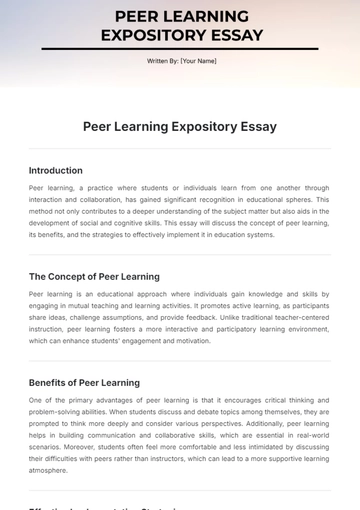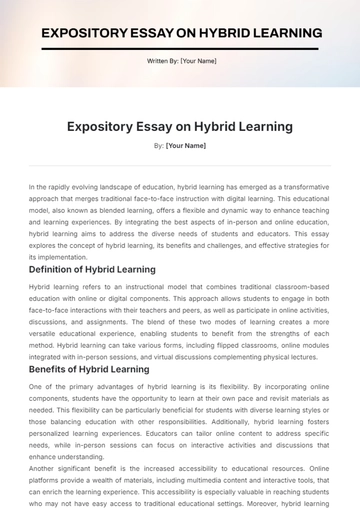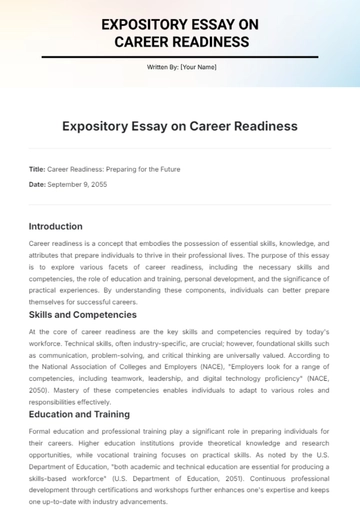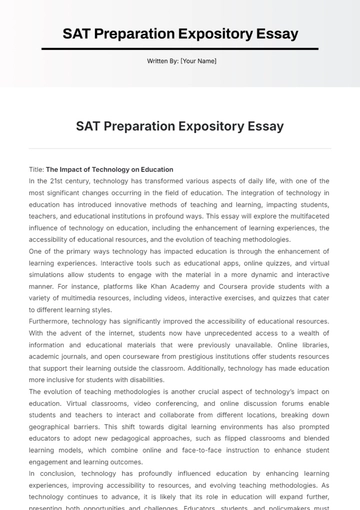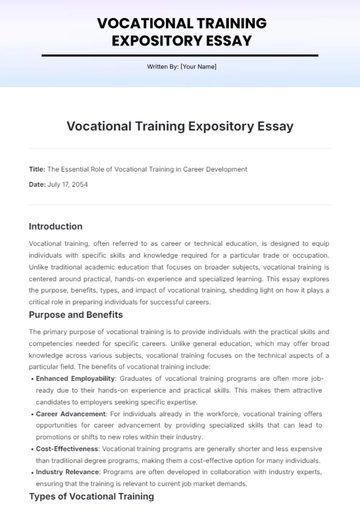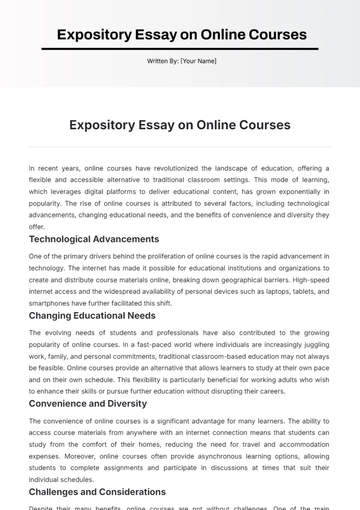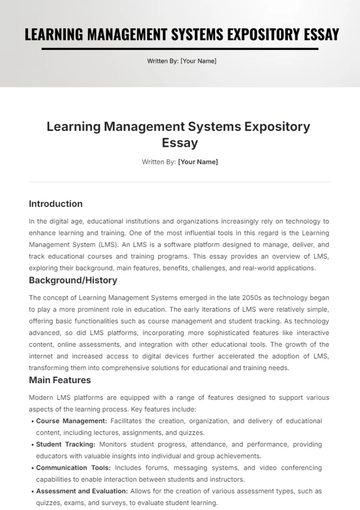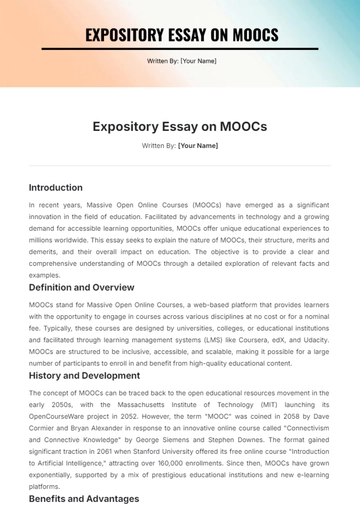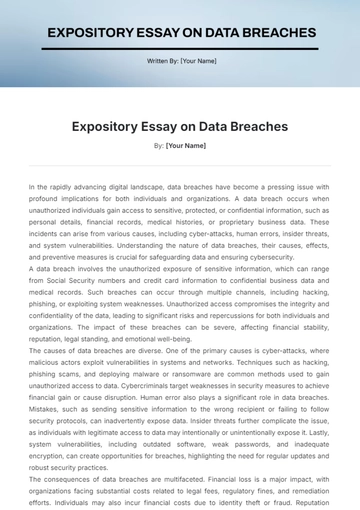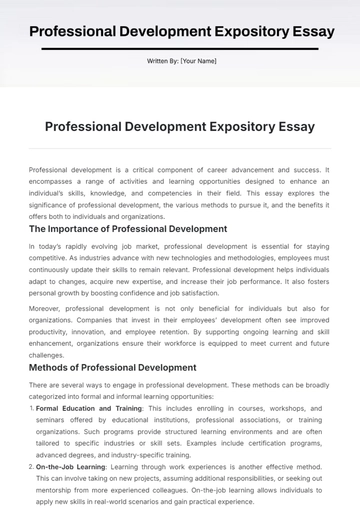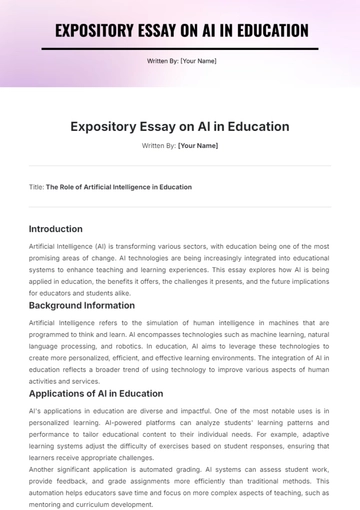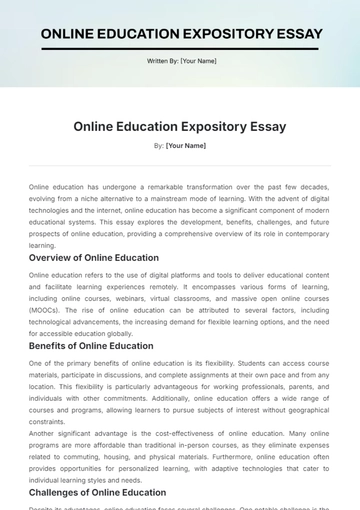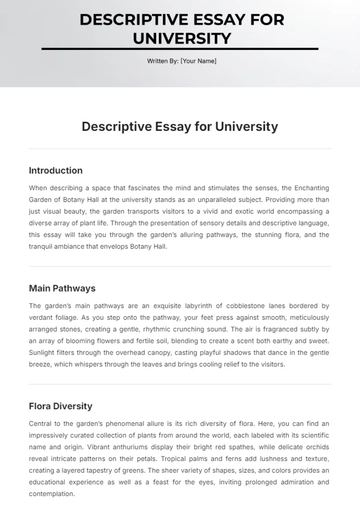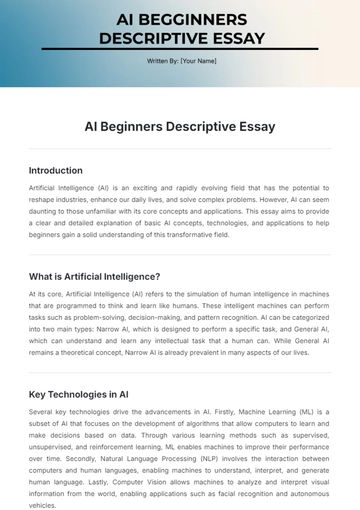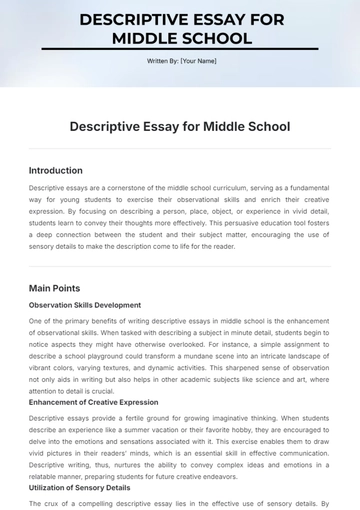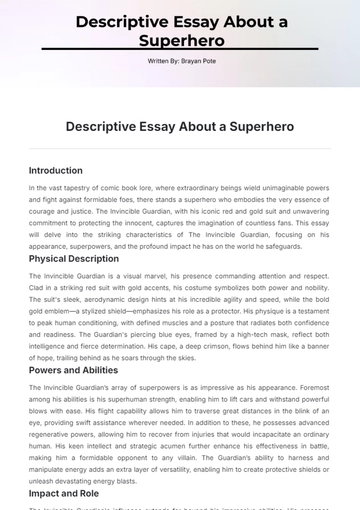Free Expository Essay on AI in Education
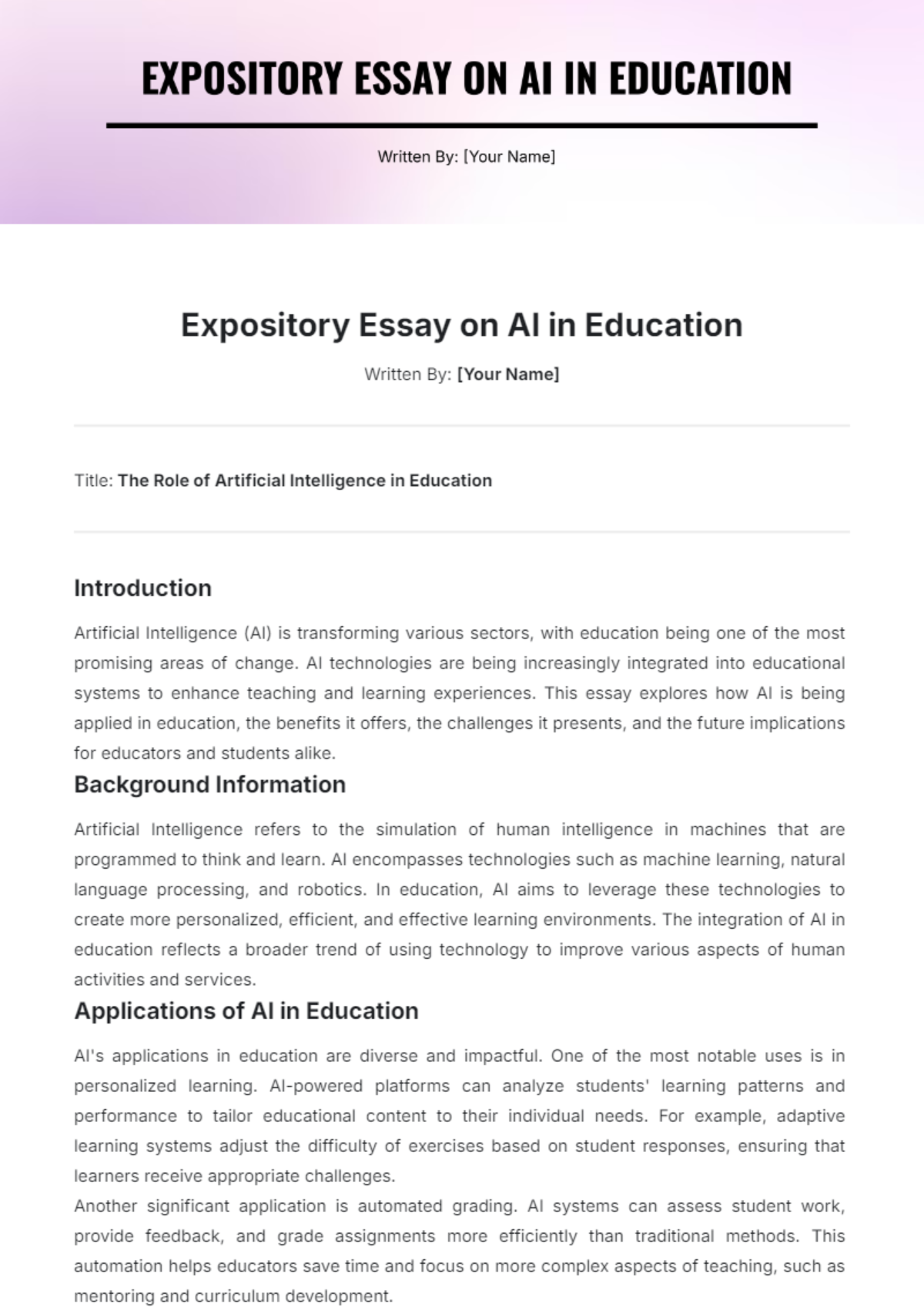
Written By: [Your Name]
Title: The Role of Artificial Intelligence in Education
Introduction
Artificial Intelligence (AI) is transforming various sectors, with education being one of the most promising areas of change. AI technologies are being increasingly integrated into educational systems to enhance teaching and learning experiences. This essay explores how AI is being applied in education, the benefits it offers, the challenges it presents, and the future implications for educators and students alike.
Background Information
Artificial Intelligence refers to the simulation of human intelligence in machines that are programmed to think and learn. AI encompasses technologies such as machine learning, natural language processing, and robotics. In education, AI aims to leverage these technologies to create more personalized, efficient, and effective learning environments. The integration of AI in education reflects a broader trend of using technology to improve various aspects of human activities and services.
Applications of AI in Education
AI's applications in education are diverse and impactful. One of the most notable uses is in personalized learning. AI-powered platforms can analyze students' learning patterns and performance to tailor educational content to their individual needs. For example, adaptive learning systems adjust the difficulty of exercises based on student responses, ensuring that learners receive appropriate challenges.
Another significant application is automated grading. AI systems can assess student work, provide feedback, and grade assignments more efficiently than traditional methods. This automation helps educators save time and focus on more complex aspects of teaching, such as mentoring and curriculum development.
Virtual tutoring is another area where AI is making a difference. AI-driven tutoring systems can provide students with instant assistance, answer questions, and offer explanations on various subjects. These systems can be available 24/7, supporting students outside regular classroom hours and enhancing their learning experience.
Benefits
The integration of AI in education offers several key benefits. Firstly, it enhances personalized learning by adapting to the needs and pace of individual students, which can improve learning outcomes and student engagement. Secondly, AI technologies can handle repetitive tasks, such as grading and administrative work, allowing educators to concentrate on more interactive and meaningful aspects of teaching. Additionally, AI-powered tools can provide students with immediate feedback, helping them understand their mistakes and learn more effectively.
AI also facilitates access to education. Through virtual tutoring and online learning platforms, students in remote or underserved areas can access high-quality educational resources and support that might otherwise be unavailable to them.
Challenges and Concerns
Despite its advantages, the use of AI in education raises several challenges and concerns. One major issue is data privacy. AI systems require access to vast amounts of student data, raising concerns about how this information is stored, used, and protected. Ensuring the security of this data and maintaining students' privacy are critical challenges.
Another concern is the potential for bias in AI algorithms. If AI systems are trained on biased data, they may produce biased outcomes, which could negatively impact certain groups of students. Addressing these biases and ensuring fairness in AI applications is essential.
There is also the risk of technology dependency. As AI tools become more prevalent, there is a concern that educators and students might become overly reliant on technology, potentially diminishing critical thinking and problem-solving skills.
Conclusion
Artificial Intelligence is reshaping the landscape of education by offering innovative solutions that enhance personalized learning, streamline administrative tasks, and provide additional support through virtual tutoring. While the benefits of AI in education are significant, including improved learning outcomes and greater access to resources, there are also important challenges that need to be addressed. Ensuring data privacy, mitigating biases, and avoiding over-reliance on technology is crucial for the responsible integration of AI in education. As AI continues to evolve, its role in education will likely expand, presenting new opportunities and challenges for educators, students, and policymakers alike.
- 100% Customizable, free editor
- Access 1 Million+ Templates, photo’s & graphics
- Download or share as a template
- Click and replace photos, graphics, text, backgrounds
- Resize, crop, AI write & more
- Access advanced editor
The Expository Essay on AI in Education Template from Template.net offers a fully customizable and editable format to suit your writing needs. Explore the impact of AI in education with ease using this template, which is editable in our AI Editor Tool. Quickly personalize content and create a polished, professional essay in no time, perfect for students and educators alike.

